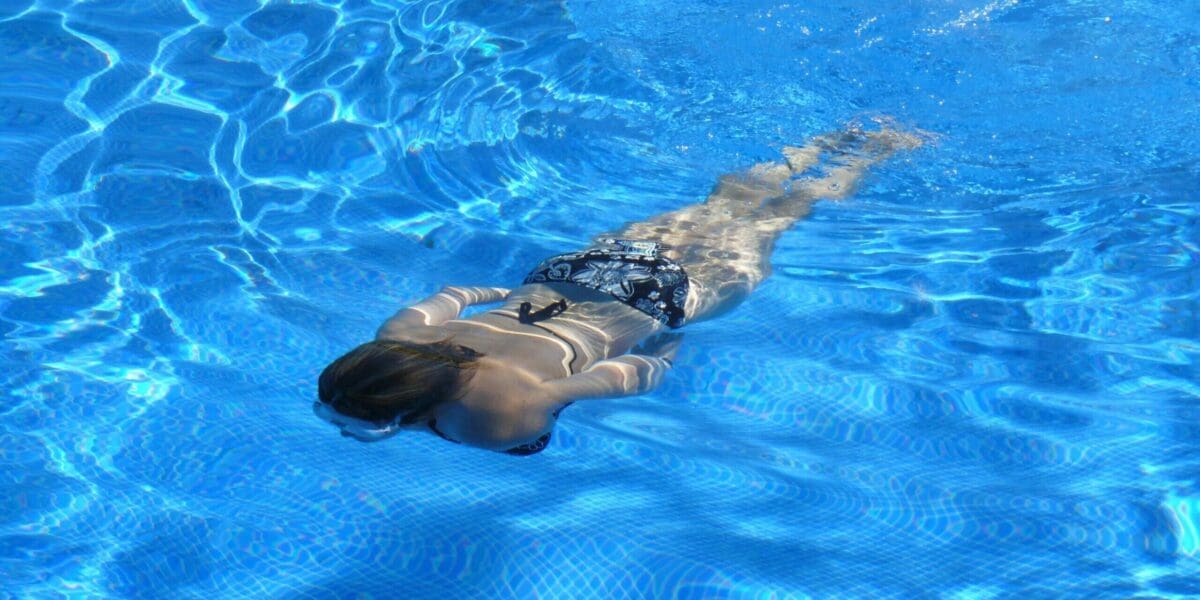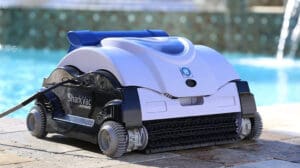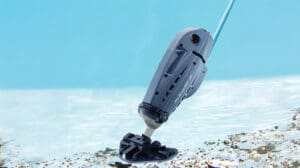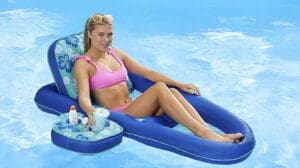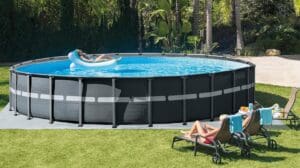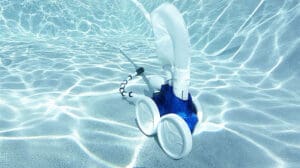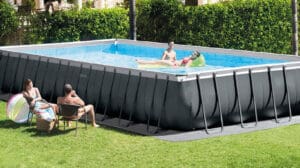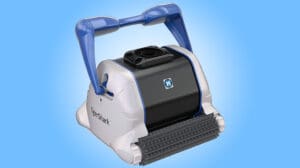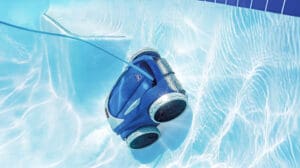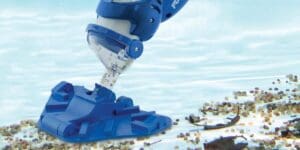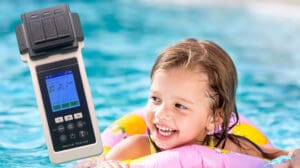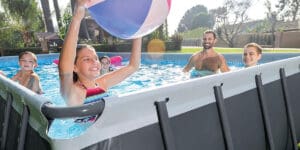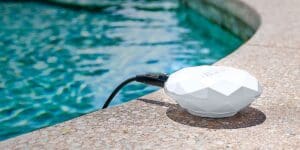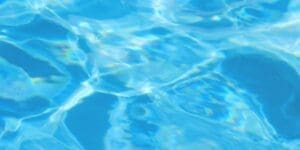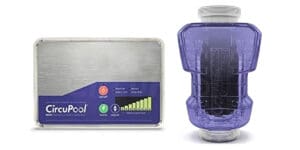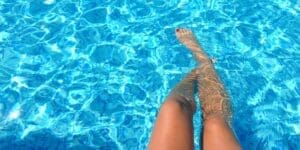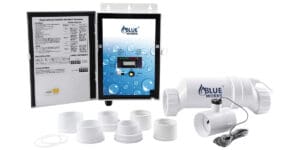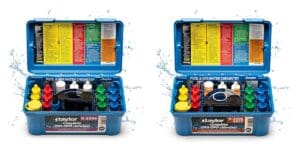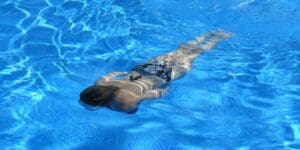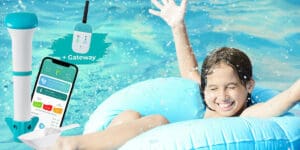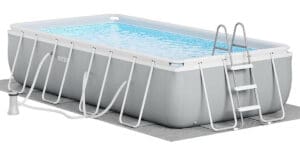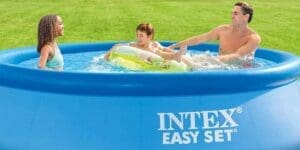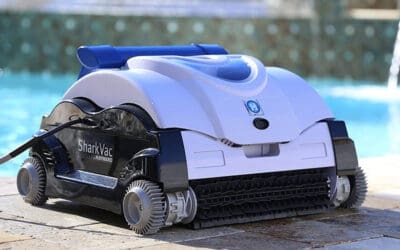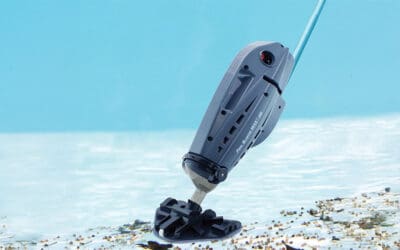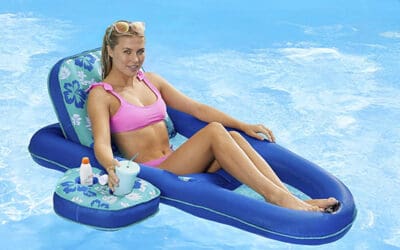Imagine yourself lounging by your pool, basking in the sunlight, and dipping your toes into the clear, sparkling water. But wait, is your pool water as inviting as it looks? Achieving that pristine clarity involves mastering the delicate balance of chlorine levels. How can you ensure your pool water remains safe and free of harmful contaminants? Find out the essential tips and tricks for maintaining ideal chlorine levels that will leave your pool water crystal-clear and ready for a refreshing swim.
Some Key Points
- Proper chlorine levels, balancing free and combined chlorine, are crucial for maintaining clear and safe pool water.
- Free chlorine should ideally range from 1.0 to 3.0 ppm for effective sanitization.
- Testing chlorine levels accurately using a pool water testing kit is essential for water safety.
- Understanding the types of chlorine (free, combined, total) is key to effective pool water maintenance.

Importance of Proper Chlorine Levels
Maintaining proper chlorine levels in your pool is crucial for ensuring clear and safe water for swimming. Chlorine maintenance plays a pivotal role in water sanitation by effectively killing off harmful pathogens like algae, mold spores, parasites, and bacteria. Additionally, chlorine neutralizes swimmers’ byproducts such as blood, urine, and sweat, along with oxidizing soaps, oils, and deodorants present in the water. While municipal water is treated with chlorine, the levels are insufficient for pool sanitation. Hence, it’s imperative to monitor and adjust chlorine levels regularly to uphold a healthy swimming environment. Remember, striking the right balance in chlorine levels is key to maintaining a pristine and safe pool for all to enjoy.
Understanding Different Types of Chlorine
To understand the importance of maintaining proper chlorine levels in your pool, it is essential to grasp the distinctions between the three types of chlorine present in pool water. Each type plays a vital role in pool sanitation and water safety. Balancing these types ensures effective chlorination and a clean swimming environment. Here is a breakdown of the different types of chlorine:
| Chlorine Type | Description | Role in Pool Water |
|---|---|---|
| Free Chlorine | Available for neutralizing contaminants | Essential for sanitization |
| Combined Chlorine | Stable form that works on contaminants | Binds to neutralize impurities |
| Total Chlorine | Sum of free and combined chlorine | Indicates overall chlorine level in the water |
Understanding chlorine chemistry and maintaining the right chlorine balance is crucial for ensuring water safety and a healthy swimming environment.
Importance of Regularly Testing Chlorine Levels
Regularly testing chlorine levels in your pool is crucial for ensuring water safety and optimal sanitization. Chlorine maintenance plays a vital role in water sanitation by effectively killing pathogens and neutralizing contaminants. By using a pool water testing kit to measure free chlorine and total chlorine levels, you can accurately determine the amount of chlorine available for sanitization and the overall chlorine concentration in the water. Balancing free and combined chlorine levels is essential for maintaining clear and safe pool water. Aim for free chlorine levels between 1.0 to 3.0 parts per million (ppm) to ensure effective sanitization. Monitoring and adjusting chlorine levels regularly will help you create a healthy swimming environment and prevent the growth of harmful microorganisms.
Considerations for Saltwater Pools
When considering saltwater pools, understand the pros and cons before making a decision for your swimming pool maintenance. Saltwater pools offer lower maintenance costs and gentler effects on skin and eyes. They also reduce the need for harsh chemicals. However, there are cons to consider, such as expensive initial installation, technical maintenance requirements, equipment corrosion risks, and potential system malfunctions. Saltwater pools utilize a saltwater chlorine generator, eliminating the need for separate chlorine addition. Remember, even in saltwater pools, chlorine is essential to prevent the rapid growth of algae and harmful microorganisms. Be prepared for the specific maintenance requirements of saltwater pools and ensure proper saltwater maintenance to keep your pool water clear and safe.
Our Conclusion
Maintaining proper chlorine levels in your pool is essential for ensuring clear and safe water. By understanding the different types of chlorine, regularly testing levels, and considering the use of shower filters, you can create a pristine swimming environment. Remember to keep a close eye on chlorine levels and take necessary steps to achieve the perfect balance for a refreshing and enjoyable pool experience.
Questions & Answers

Can Over-Chlorinating a Pool Have Negative Effects on Swimmers’ Health?
Over-chlorinating a pool can have negative effects on swimmers’ health. Health risks arise from high chlorine levels in pools, impacting swimmer safety. It can lead to skin irritation, eye discomfort, and respiratory issues. Maintaining proper chlorine levels is crucial to prevent over-chlorination and ensure a safe swimming environment. Regularly monitor chlorine levels to avoid health hazards and promote a healthy swimming experience.
What Are Some Common Mistakes People Make When Trying to Balance Chlorine Levels in Their Pool?
When trying to balance chlorine levels in your pool, common misconceptions can lead to errors. Proper testing techniques are key to maintaining safe water. Some mistakes include adding too much chlorine at once, neglecting to test levels regularly, and not understanding the difference between free and combined chlorine. Educate yourself on these factors to ensure a healthy swimming environment.
How Does Temperature and Sunlight Exposure Affect Chlorine Levels in a Pool?
When temperature rises and sunlight hits your pool, chlorine levels can fluctuate. pH levels can shift, impacting chlorine stability. High temperatures and intense sunlight can accelerate chlorine breakdown, reducing its effectiveness in killing algae and bacteria. Adequate water circulation helps distribute chlorine evenly. Monitor your pool closely, adjust chlorine levels as needed, and consider using stabilizers to maintain a consistent chlorine balance for clear and safe water.
Are There Any Natural Alternatives to Chlorine for Sanitizing Pool Water?
When it comes to sanitizing pool water, you might wonder about natural alternatives to chlorine. Some options like UV and ozone systems can be effective but come with a higher initial cost. These alternatives can reduce the environmental impact that chlorine might have. However, ensure to research thoroughly and weigh the effectiveness against the cost and environmental considerations before switching from traditional chlorine treatments.
How Often Should Pool Owners Backwash Their Filters to Maintain Proper Chlorine Levels?
When maintaining your pool, ensure proper filter maintenance to keep chlorine levels in check. Backwash your filters regularly to uphold ideal chlorine levels for clear pool water. Consider effective chlorine alternatives for sanitization as well. Prioritize filter maintenance frequency to avoid imbalances in chlorine levels, crucial for a safe and clean swimming environment. Regularly backwashing filters aids in maintaining optimal chlorine levels, contributing to a healthy pool environment.
